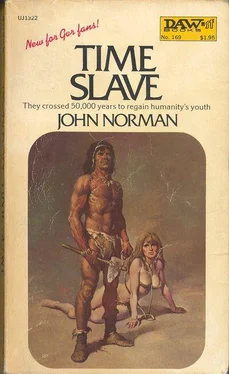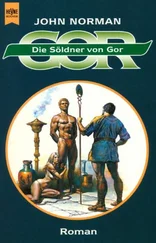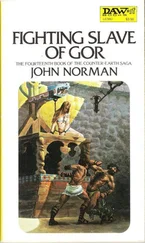The test sequence had begun.
The lights grew brighter in the experimental shack, and then dimmed.
What had come to him like wine, like the gift of a drunken god, the bequest and gratuity of a laughing Dionysus, inexplicably to a criminal in a madman’s cell in Borga, was now being subjected to test in a small shack in an isolated compound in the dry lands of Rhodesia, some two hundred and fifty miles southwest of Salisbury.
Hamilton thought of fire burning in the thieving hand of Prometheus.
The first test sequences had been fruitless. Herjellsen had sought perhaps a hundred tests to subject his conjecture to experiment, and each had failed; the conjecture had neither, to a rational degree, been confirmed nor disconfirmed; data had been unclear; results were irrelevant or indecisive; new procedures had been sought; and then, after months of work, found; it was only then that Gunther and William, and Hamilton, had been brought to the compound.
Hamilton regretted having come. The retainer had been impossible to resist, and Hamilton, in the tense job market, had been without position. The position was to last four weeks. Already Hamilton had been at the compound more than two months. The supply truck no longer came. Herjellsen himself, in his British Land Rover, to which he kept the keys, made overland journeys to Salisbury and back, taking Gunther and William with him. Hamilton was not permitted to accompany them. Hamilton had received traveling expenses from California and an initial fee of four hundred British pounds. But Hamilton had received nothing further. Hamilton wanted to return to the United States.
“We need you,” had said Herjellsen. “You may not leave now.”
“I will tell you who Herjellsen is,” had said Gunther, speaking to Hamilton privately. He showed Hamilton, too, the clippings, the police bills.
Hamilton was not permitted outside the compound. The blacks saw that Hamilton remained in the compound.
“Do your work, Doctor Hamilton,” had said Herjellsen. “We need you.” Sweat had broken out on his broad forehead. His hands had opened and closed.
“I will walk you to the shed,” had said Gunther.
“No,” Hamilton had said. “I will go alone.” Hamilton feared Gunther. Hamilton did not care for Gunther’s eyes. They frightened Hamilton.
Hamilton threw away the cigarette, onto the dry dust of the compound.
The high wire fence about the compound was said to protect the compound from animals. It was electrified. Hamilton was not permitted beyond the fence.
Prometheus had stolen fire. Herjellsen was kindling it.
The Greeks were not children. The legend of Prometheus was not a child’s explanation for man’s possession of fire. It said rather that fire was what would make men akin to the gods, and like unto the gods themselves. It would bring them above the beasts. It might take them, in the eruptions of flaming engines, to the stars.
And the Greeks were wary, for this might be pride in men, and carry in it the seeds of their downfall. Prometheus had expiated his crime, chained to a rock in Scythia, his body prey to the avenging eagle of Zeus, but while he screamed in the sun, beneath the beak and talons, the ships, in their thousands, carrying coals of fire, set forth from the rocky inlets, to colonize a world.
Man will go to the stars, had cried Herjellsen. He will put his flags, and his children, beyond the perimeter of Orion; he will make his camps on the shores of Ursa and build cities in the archipelagoes of Antares and Andromeda.
Hamilton wondered if Prometheus might have regretted his decision.
Herjellsen sometimes spoke of Prometheus.
“Did he regret his decision?” had asked Hamilton of Herjellsen, amused, for Herjellsen seemed to take such tales seriously.
“I do not regret what I have done,” had said Herjellsen.
Hamilton had not pressed the matter further. Nothing more had been said at the meal.
Herjellsen was mad.
He was also a dying man. He had angina pectoris, and was subject to attacks of increasing severity. He drove himself cruelly, foolishly, mercilessly.
The generator whined to a halt.
The lights in the experimental shack went out.
Hamilton was startled.
The four light bulbs, set on poles about the compound, had been extinguished, and the dust of the compound was no longer the bleak, bright reflecting surface that it had been, hot, hard and yellow, but now, in the light of the African moon was white and cold.
The door to the shack opened. One of the blacks, a lantern swinging in his hand, went to the door. William slipped from the door, swiftly.
He passed Hamilton. “I must get my bag,” he said.
“What is wrong?” asked Hamilton, frightened.
“It’s the old man,” he said.
Hamilton tensed.
William had gone to the hut he shared with Gunther. In a moment he emerged, carrying his bag.
William was a physician. He had practiced in London. He was also a gifted mathematician. Many of the equation resolution procedures which Hamilton had programmed into Herjellsen’s analyzer, a modified 1180 device, had been provided by William. A condition of Hamilton’s employment had been, oddly, a medical examination in William’s London office. “The employer,” had said William, indicating the man Hamilton was later to learn was Herjellsen, “requires excellent health in those working in his service.” Hamilton had understood that the employer’s facility was in Rhodesia, in an out of the way area, and that medical facilities would not be readily available. Hamilton had been surprised to learn, later, that William was a member of the staff at the compound. He had arrived, returning to the compound, the day before Hamilton. Gunther, and Herjellsen, and the blacks, had been waiting. His quarters were well stocked with supplies. He himself, Hamilton was aware, was a competent, respected physician. Medical facilities, it seemed, were quite adequate. Perhaps, Hamilton had speculated, the employer is a hypochondriac, with a phobia concerning infections, or some such affliction. But Herjellsen, Hamilton had learned, was not a hypochondriac. Indeed, he was an actually ill man, a desperately ill man who took too little care of his own body.
Hamilton moved as though to leave the porch. “Do not come to the shack,” said William sharply. It was unlike William to speak sharply.
“Oh,” said Hamilton. “Very well.” Hamilton had never been allowed in the experimental shack.
William disappeared in the door of the shack. It closed behind him. Hamilton could see the light of the black’s lantern through the white-painted window.
It had been Hamilton’s health in which Herjellsen had been critically interested. Not his own. “You are in superb condition,” had said William in his London office. “The employer will be pleased.”
The work that Hamilton had performed in the compound Hamilton had discovered could have been performed by Herjellsen himself, or Gunther. Hamilton had done a great deal of work, but it was not work which only Hamilton, of those on the staff, could have performed. The services of Hamilton, it seemed, were not, strictly, required.
“It frees us for other work,” Herjellsen had said, “and, too, should one of us be unable to function, another will be able to take his place.”
“Skill redundancy,” had added Gunther, “is policy with Herjellsen.”
“I expect to be able to function,” had smiled Hamilton.
“I am confident,” had said Gunther, “you will fulfill all our expectations.”
Herjellsen, then, with Continental gallantry, had lifted his glass of wine to Hamilton. Hamilton had looked down at the table.
But the services of Hamilton, Hamilton had come to discover, more and more, day by day, were truly not needed. Two nights ago Hamilton had, deliberately, slipped an error into the print outs. Herjellsen, in less than fifteen minutes, had discovered it.
Читать дальше












